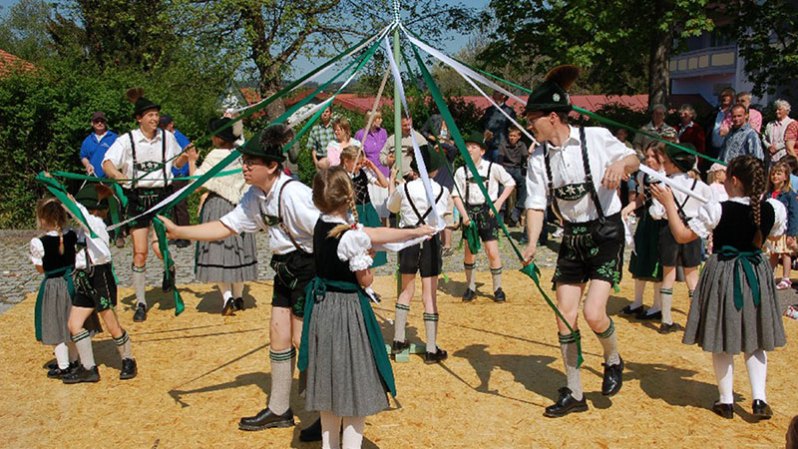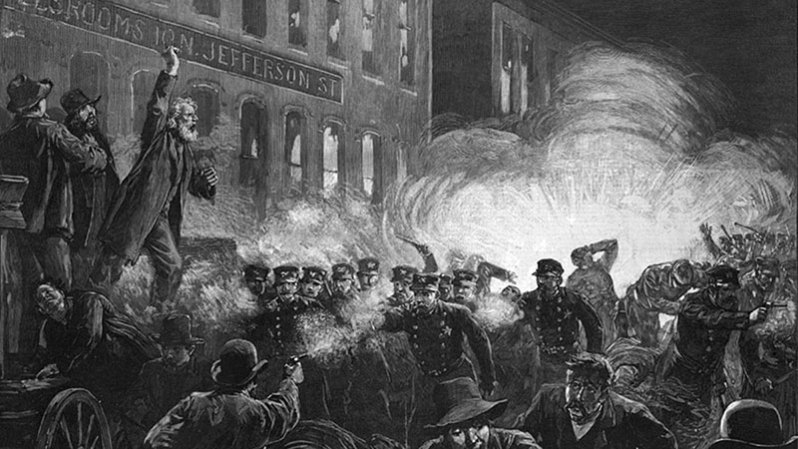
The first of May is a unique day indeed. While no one talks about August Day or October Day or March Day, May 1st has its own special (albeit not very imaginative) name: May Day. But what is May Day and why do we celebrate it? The answer to that depends on who you ask. For while some people see May Day as a time for children to dance joyfully around the Maypole while singing traditional songs of spring, others see it as a date on which to revere the workers of the world, to promote global communism, and to remember the Haymarket Massacre. Slight gulf there, no?
Related:
First let’s discuss the traditional history of May Day.
When did May Day first begin?
It all started with the pagans, just like so many holidays, including Christmas, April Fools’ Day, Arbor Day, and the 4th of July (fireworks included). The Iron Age Germanic people celebrated the coming of warm weather and the commencement of the planting season. The traditional maypole was first used in territory that is today part of Germany and may have represented the axis around which the world turned, the proverbial Tree of Life or… a giant phallus. Either way, early May Day festivities celebrated the fertility of the land and venerated the gods that allowed the production of a bounteous crop.
As Christianity spread across Europe and beyond, May Day lost its association with pagan religious practices, but the celebration of the date endured nonetheless as a secular holiday. The maypole was frequently seen throughout Medieval Europe and remains a part of springtime celebrations to this day. May Day dances usually involve children adorned with fresh flowers skipping around a wooden maypole holding long, colorful streamers that gradually wind around the post while singing traditional songs.
But there’s another May Day, too. And it’s often called International Worker’s Day. And here’s a little surprise for you: this pro-socialist day was started right here in America.
In the 1800s, not being rich was pretty terrible. Working class life usually involved conditions such as twelve-plus hour work days, dangerous, dirty, factories, low wages, and basically no power to negotiate for improvement. So the socialist/communist ideas coming out of Europe were rather attractive to the American laborer in the late years of the 19th century. So much so that dozens of groups of workers began to assemble and agitate for change, with the biggest demonstration coming in the form of a massive strike held in Chicago on May 1st, 1886. Some 100,000 workers in all walked off the job–and for about 48 hours their protest was peaceful. Then the strikebreakers and police went in; many strikers were beaten and several protesters were killed. The next day, May 4th, someone threw a stick of dynamite into a crowd of protesters and police, killing several from each side. That led to a high-profile trial that was broadly seen as a miscarriage of justice during which several anarchists were convicted of conspiracy and hanged despite flimsy evidence they had anything to do with the blast.

The whole mess became known as the Haymarket Massacre (also often called the Haymarket Affair) and would go on to become a milestone for the modern socialist movement. Today May Day is seen by many not as a time to dance around a giant wooden phallic symbol, but instead to proclaim the virtues of socialism.
As for why we say “mayday!” in an emergency, that’s a simpler story that has nothing to do with pagans or worker rights. The word, which is international recognized as an announcement of distress, sounds much like the French “m’aidez” which translates to “help me.” The use of “mayday” as an emergency call was proposed by a man named Frederick Stanley Mockford who worked as a radio operator at a London airport in the 1920s. His proposal of the Anglicized French expression was predicated on the frequent air traffic between England and France at the time. By the end of the decade, the distress call had already been adopted around much of the globe.



